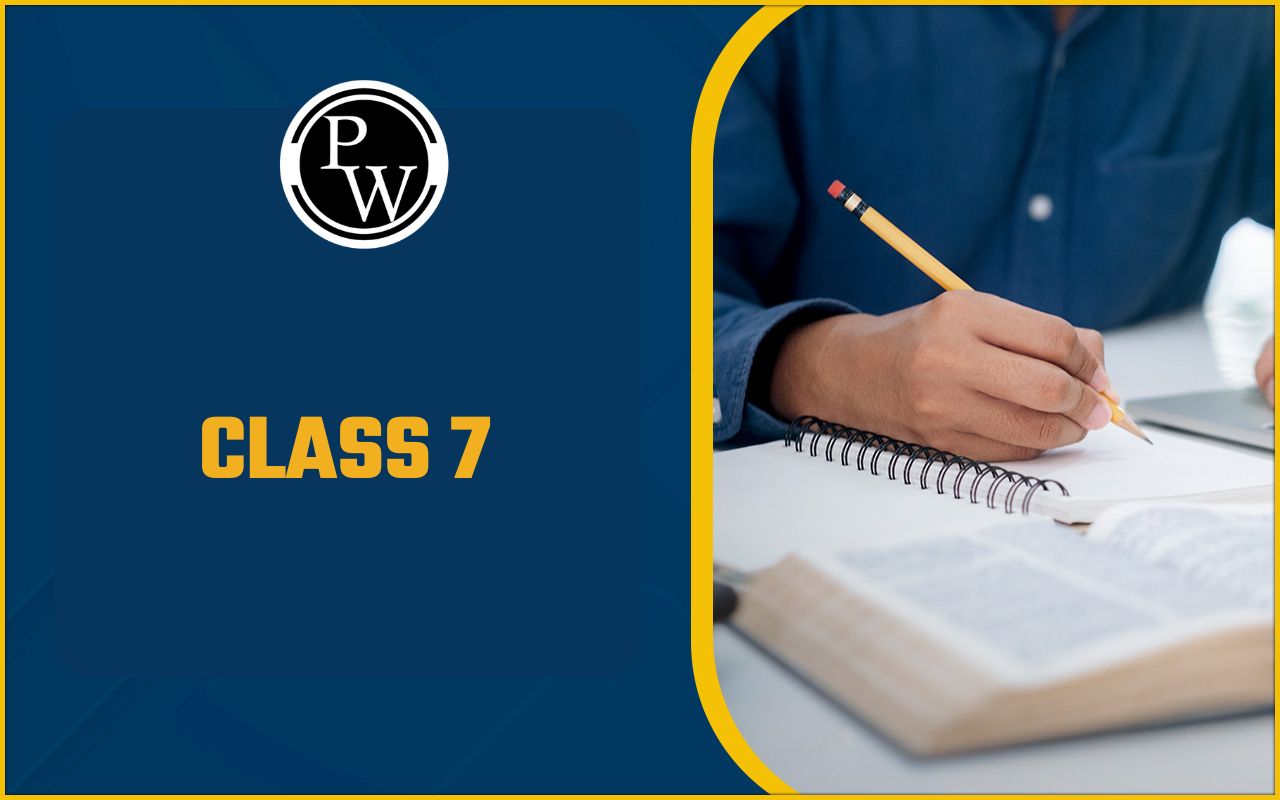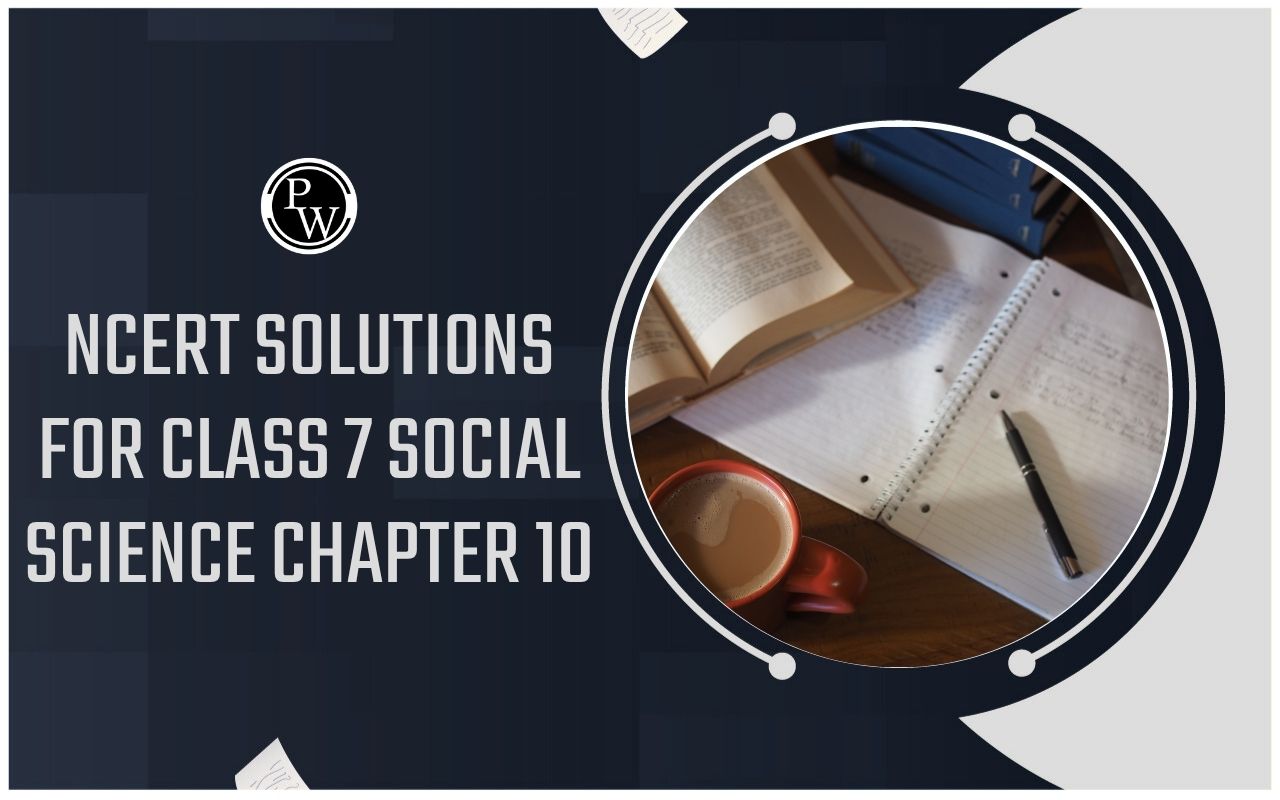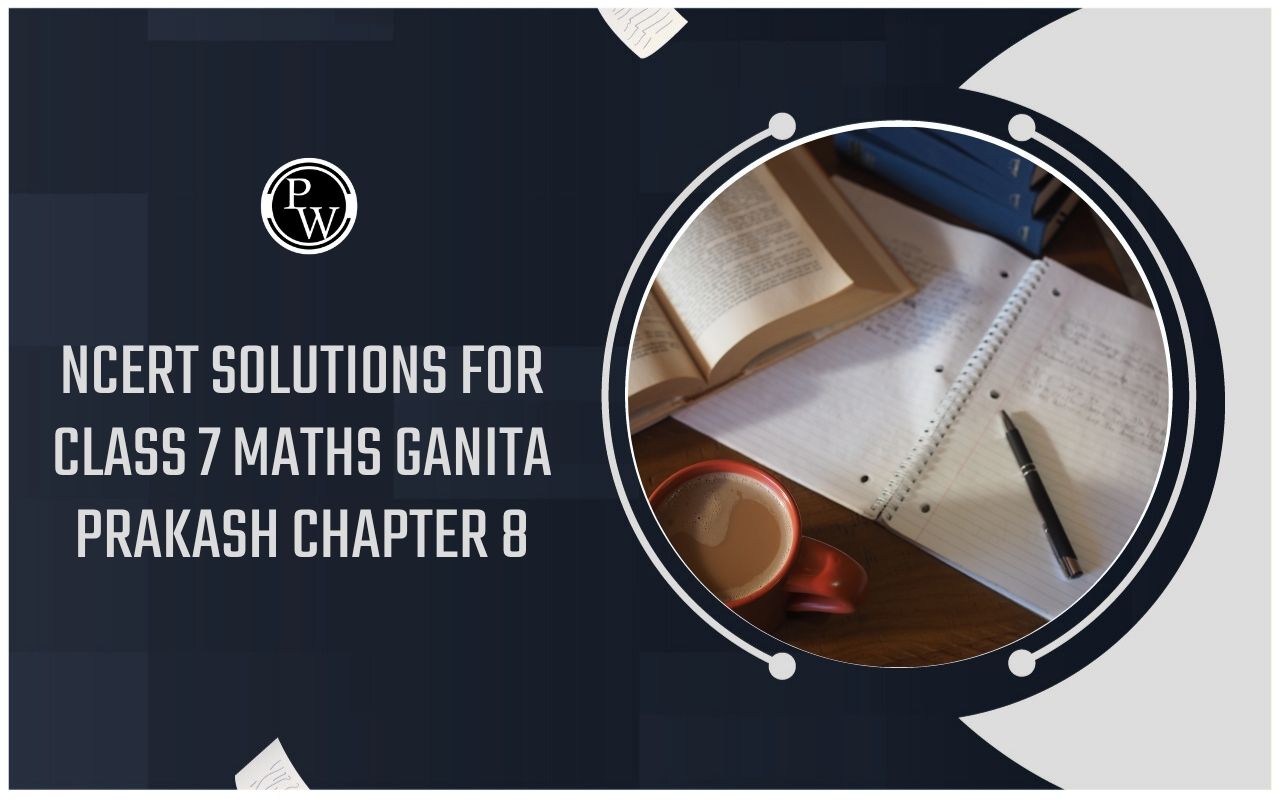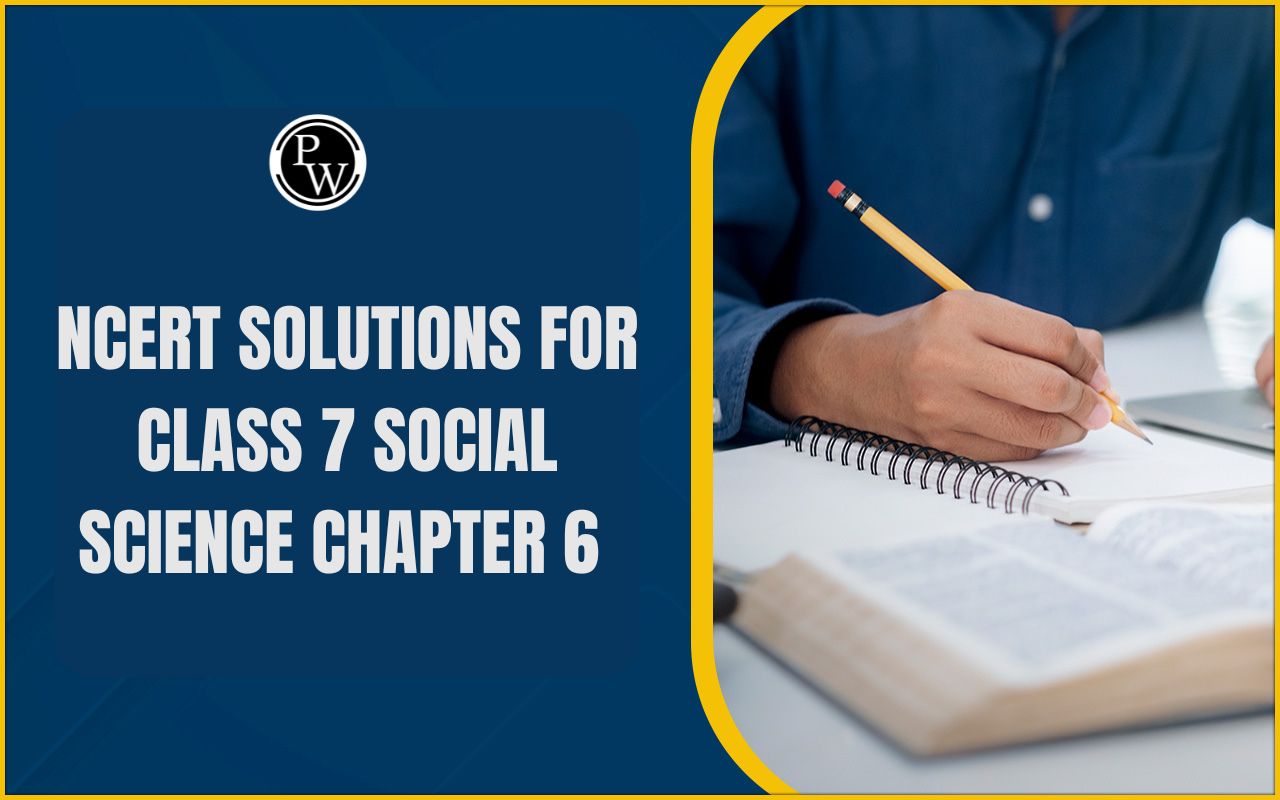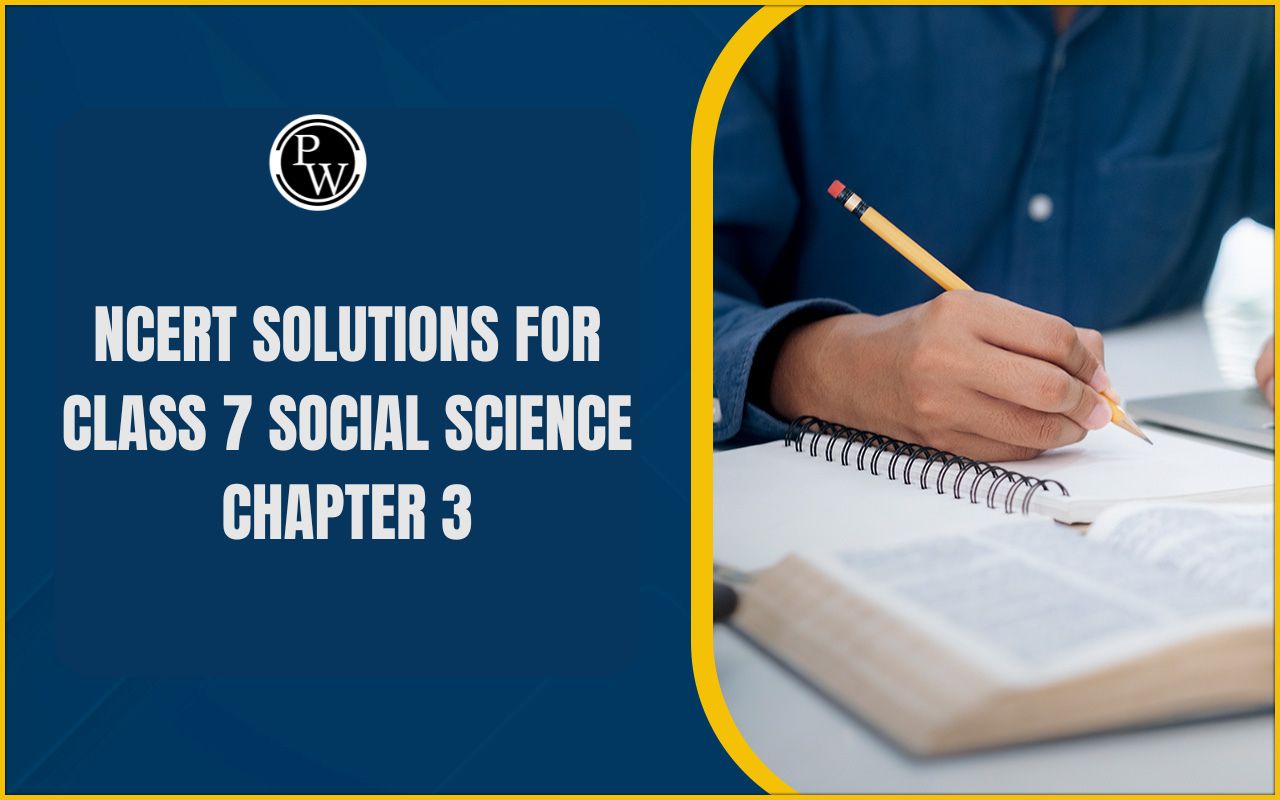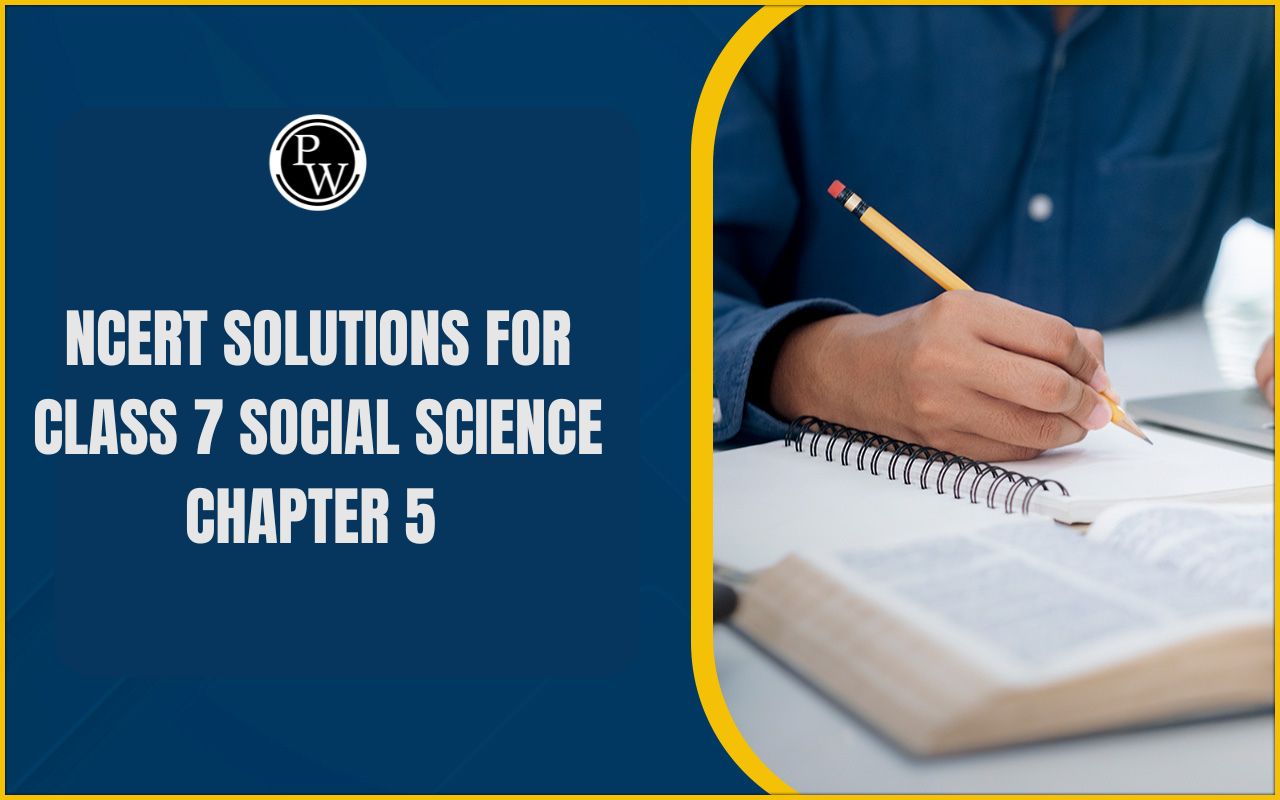
NCERT Solutions for Class 7 English Honeycomb Poem Chapter 4
NCERT Solutions Class 7 English Honeycomb Poem Chapter 4: Physics Wallah offers NCERT Solutions Class 7 English Honeycomb Poem Chapter 4 "Chivvy," where each question from the textbook is thoroughly answered to provide accurate and detailed explanations. Our team of experts has made these NCERT Solutions to offer students a comprehensive understanding of how to write good answers. The poem "Chivvy" delves into the theme of adults constantly advising young children on what to do and what not to do. Adults often dictate how children should eat, sit, speak, and what they should say. Interestingly, the poem concludes with an irony where adults expect children to make their own decisions, contrary to their usual expectations of children blindly following their instructions.NCERT Solutions for Class 7 English Honeycomb Poem Chapter 4 Chivvy
NCERT Solutions Class 7 English Honeycomb Poem Chapter 4 can help CBSE class 7 students a lot with their exams. Find the detailed solutions below:Working with the Poem
Question 1. Discuss these questions in small groups before you answer them.
(i) When is a grown-up likely to say this?
Don’t talk with your mouth full.
Answer: The grown-ups are likely to say this when kids are eating and have their mouths full, and are trying to speak simultaneously.(ii) When are you likely to be told this?
Say thank you.
Answer: Grown-ups instruct kids to say thank you when someone offers them something or when someone helps them.(iii) When do you think an adult would say this?
No one thinks you are funny.
Answer: Adults would say this when children are told to perform some activity and they are feeling shy.Question 2: The last two lines of the poem are not prohibitions or instructions. What is the adult now asking the child to do? Do you think the poet is suggesting that this is unreasonable? Why?
Answer: The last two lines of the poem are not prohibitions or instructions. Instead, the last two lines pose an irony. In these lines, the adult asks the children to take independent decisions. Yes, the poet suggests that this is unreasonable because, at all times, the grown-ups expect children to listen and follow the instructions of adults blindly. And suddenly, they want them to take their decisions.Question 3: Why do you think grown-ups say the kind of things mentioned in the poem? Is it important that they teach children good manners, and how to behave in public?
Answer: I think the grown-ups say the kind of things mentioned in the poem in order to teach children decent and proper ways of doing things. Yes, it is important that adults teach children good manners and how to behave in public because they have experienced and learnt these things. But sometimes adults become so strict with children that they lose their innocence and playfulness.Question 4: If you had to make some rules for grown-ups to follow, what would you say? Make at least five such rules. Arrange the lines as in a poem.
Answer: Don’t shout at children. Don’t beat them. Don’t use your mobile while eating. Don’t use abusive language for anyone. Spend more time with pets and children. Don’t stop children from playing.| CBSE Syllabus Class 7 | |
| CBSE Class 7 English Syllabus | CBSE Class 7 Math Syllabus |
| CBSE Class 7 Social Science Syllabus | CBSE Class 7 Science Syllabus |
Important Questions on NCERT Solutions for Class 7 English Unit 4 Poem
Q1 What does the Unit 4 Poem of NCERT Solutions for Class 7 English depict?
The Unit 4 Poem of NCERT Solutions for Class 7 English depicts how grown-ups keep instructing small kids as to what they should do and what they should not.Q2 What are a few things that grown-ups say to youngsters in Unit 4 Poem of NCERT Solutions for Class 7 English?
The grown-ups say things like speak up, don’t talk with your mouth full, don’t stare, don’t point, don’t pick your nose, sit up, say please, make less noise, shut the door behind you, don’t drag your feet, etc. to the youngers.Q3 What does it mean when grow-ups say, “Take your elbows off the table” as mentioned in Unit 4 Poem of NCERT Solutions for Class 7 English?
It’s not considered well-mannered to eat leaning with the elbows on the table. Hence, to teach table manners, grow-ups tell this to kids/children.CBSE Board Exam Centre List 2024
NCERT Solutions Class 7 English Honeycomb Poem Chapter 4 Summary
Let's explore the meaning of "Chivvy." According to the Oxford dictionary, "Chivvy" means to repeatedly tell someone to do something. Before delving into the poem, there's a brief background provided where Michael, the poet, is taken to school by his mother for admission. During a conversation with the teacher, Michael reveals that his mother calls him "Michael Don't" at home, indicating that she often nags him and dictates what he should and shouldn't do. Moving on to Michael Rosen's poem, the poet reflects on the various instructions grown-ups constantly give him. These include not talking with his mouth full, avoiding staring or pointing at others, refraining from picking or digging his nose, sitting up straight, and using polite language like saying "please." Grown-ups also teach children not to drag their feet, to keep quiet, to close doors behind them, to carry a handkerchief, and to keep their hands out of their pockets. The poet aims to highlight how adults' constant nagging and imposition of rules restrict children's natural inclinations. The poem underscores how this behavior can lead to grown-up children who struggle to make decisions independently.NCERT Solutions for Class 7 English Honeycomb Poem Chapter 4 PDF Download
Why Choose Physics Wallah?
The world sees fresh technology and innovation daily. Education is the foundation of success, and to aid in this, numerous online learning platforms strive to provide top-notch resources for your child's academic journey. Amidst these platforms, Physics Wallah stands out as a leader. Physics Wallah understand the diverse needs of students and gathers top-notch solutions and study materials to simplify the curriculum. Our high-quality videos feature dedicated educators explaining every chapter thoroughly and effortlessly. These videos are supplemented with mock tests and previous year's question papers, empowering your child with the tools to achieve excellent marks.
Benefits of NCERT Solutions for Class 7 English Honeycomb Poem Chapter 4
NCERT Solutions for Class 7 English Honeycomb Poem Chapter 4, titled "Chivvy", offer several benefits to students studying English literature at the seventh-grade level. This chapter focuses on the poem "Chivvy" by Michael Rosen, which explores the concept of playfulness and the joy of childhood. Here are some of the benefits of using NCERT solutions for this chapter:- Comprehensive Understanding : The NCERT solutions provide a detailed analysis of the poem, helping students grasp its themes, language, and underlying messages. By breaking down the poem stanza by stanza, students can develop a deeper understanding of the text.
- Clarity in Concepts : The solutions clarify any doubts or confusion students may have regarding the poem's meaning, ensuring that they interpret it correctly. Through explanations and examples, students can gain clarity on literary devices, imagery, and other poetic elements employed in the poem.
- Language Enhancement : Studying the poem with the help of NCERT solutions aids in language enhancement. Students learn new vocabulary, phrases, and expressions used in the poem, which contributes to their overall language skills and comprehension abilities.
- Critical Thinking Skills : The questions and exercises provided in the NCERT solutions encourage critical thinking and analysis. Students are prompted to delve deeper into the text, evaluate its implications, and form their own interpretations, fostering analytical skills essential for academic success.
- Literary Appreciation : By studying poems like "Chivvy" through NCERT solutions, students develop an appreciation for literature and poetry. They learn to recognize and appreciate the artistry and creativity of poets, cultivating a lifelong interest in literature and the humanities.
- Exam Preparation : NCERT solutions serve as valuable study material for exams. The questions and answers align with the curriculum, helping students prepare effectively for assessments and gain confidence in their knowledge of the poem.
- Enhanced Communication Skills : Engaging with the poem and its analysis in the NCERT solutions contributes to the development of communication skills. Students learn to articulate their thoughts coherently, express their interpretations effectively, and participate in meaningful discussions about the poem.
- Cultural Understanding : Through the poem "Chivvy", students gain insight into the cultural and social contexts of childhood and play. They explore universal themes related to growing up, imagination, and the innocence of youth, fostering empathy and cultural understanding.
How to Prepare with NCERT Solutions for Class 7 English Honeycomb Poem Chapter 4
Preparing with NCERT Solutions for Class 7 English Honeycomb Poem Chapter 4, titled "The Chivvy," involves a systematic approach to understanding the poem, and analyzing its themes, literary devices, and language. Here's a detailed guide on how to effectively prepare using NCERT Solutions: Understanding the Poem- Read the Poem Thoroughly : Begin by reading the poem carefully to grasp its central idea and storyline. "The Chivvy" is a poem that narrates a child's perspective on being nagged or 'chivvied' by adults.
- Identify the Theme : Try to identify the main theme or message conveyed by the poem. In "The Chivvy," the theme revolves around the annoyance caused by incessant nagging or being pestered.
- Analyze the Characters : While there may not be specific characters in the conventional sense, the poem presents the speaker's perspective. Analyze how the speaker feels and responds to the situation described in the poem.
- Figurative Language : Look for metaphors, similes, and other figurative language used in the poem. These literary devices enhance the imagery and deepen the meaning. For instance, the phrase "chivvy me like a goat" employs a simile to vividly illustrate the feeling of being nagged.
- Rhyme Scheme and Meter : Analyze the poem's rhyme scheme and meter if applicable. Understanding the rhythmic patterns can provide insights into the poem's structure and flow.
- Imagery : Pay attention to the imagery used by the poet to evoke sensory experiences and create vivid mental pictures. Explore how imagery contributes to the overall mood and tone of the poem.
- Textual Understanding : Utilize NCERT Solutions to gain a deeper understanding of the poem's text. Solutions typically provide explanations and interpretations of each stanza, helping clarify any complex or ambiguous passages.
- Question-Answer Practice : Engage with the questions provided in the NCERT Solutions. These questions often cover various aspects of the poem, such as its themes, language, and literary devices. Practicing these questions can enhance your analytical skills and comprehension of the poem.
- Additional Resources : Supplement your preparation with additional resources, such as reference books or online guides, if necessary. However, ensure that these resources align with the content covered in the NCERT textbook to avoid confusion.
- Regular Revision : Schedule regular revision sessions to reinforce your understanding of the poem. Review key concepts, themes, and literary devices to maintain clarity and retention.
- Practice Writing : Practice writing analytical essays or responses based on the poem. This will help strengthen your critical thinking skills and ability to express your interpretations effectively.
- Peer Discussions : Engage in discussions with peers or teachers to exchange insights and interpretations of the poem. Hearing different perspectives can broaden your understanding and deepen your appreciation of the text.
NCERT Solutions for Class 7 English Honeycomb Poem Chapter 4 FAQs
What are some common literary devices used in "The Chivvy"?
Can you provide a summary of "The Chivvy"?
How can I improve my understanding of poetry in general?
Are there any specific historical or cultural references in "The Chivvy"?
What are some tips for answering questions related to "The Chivvy" in exams?



